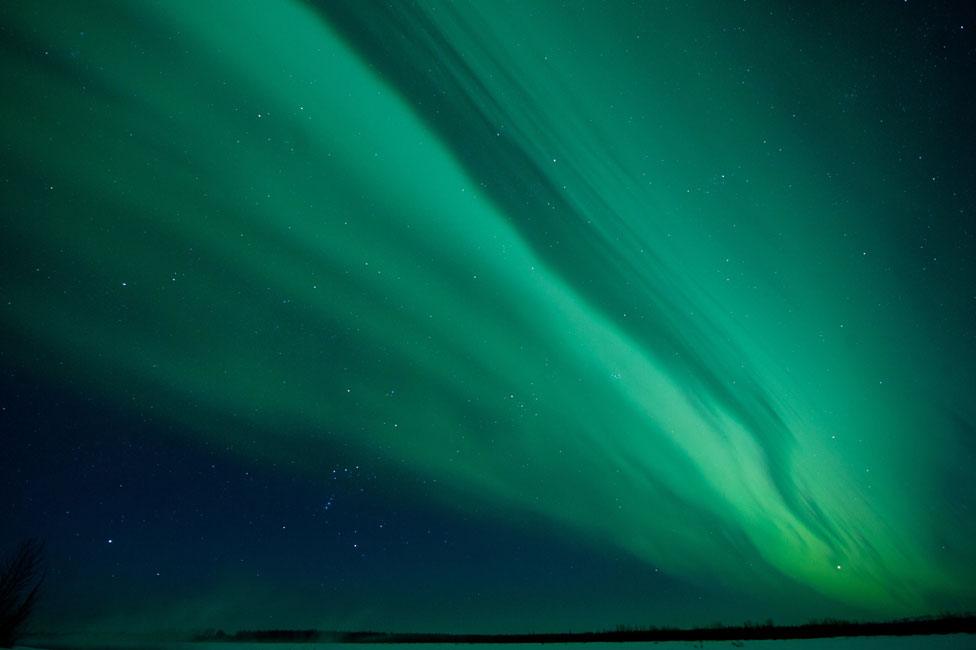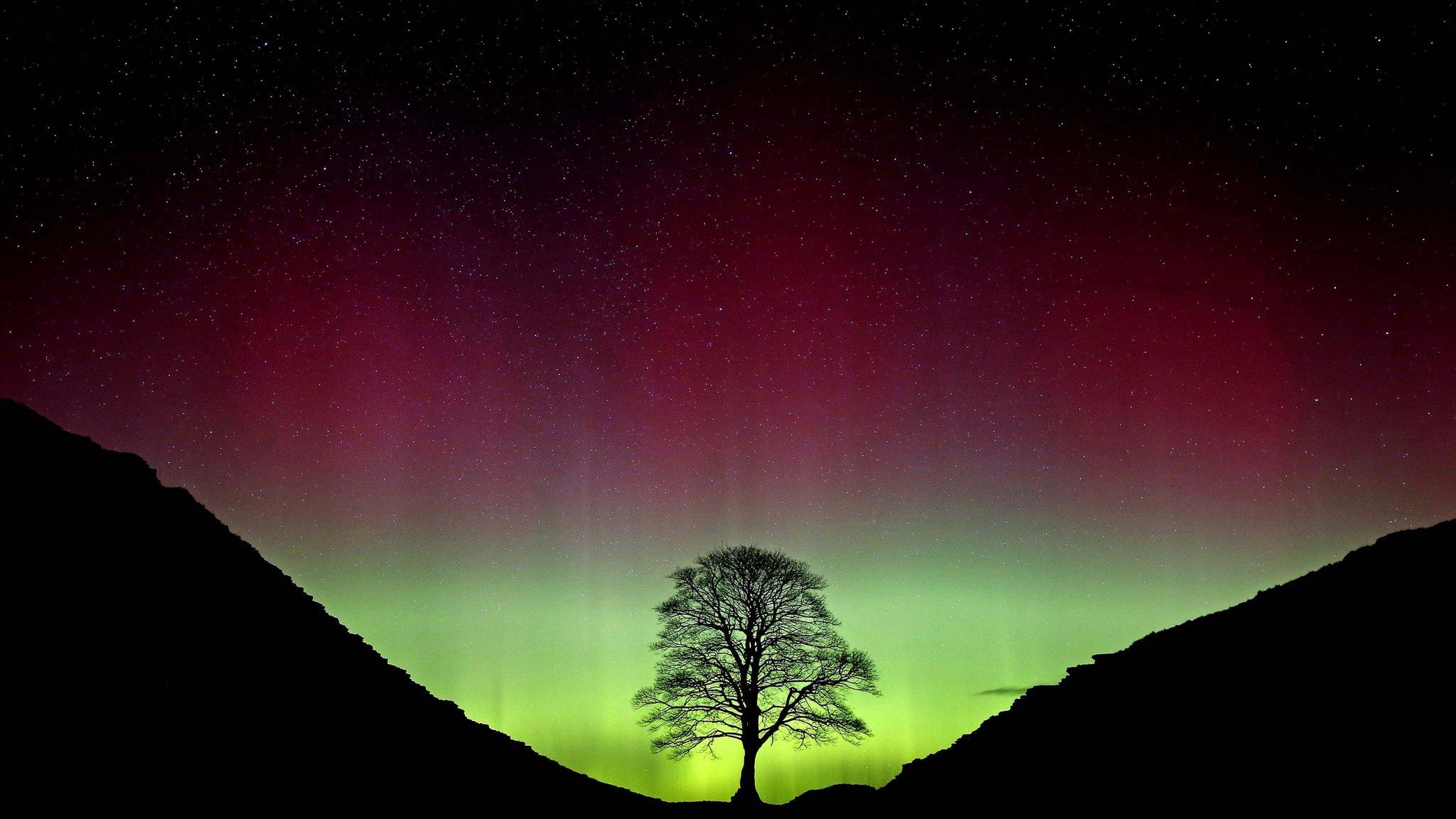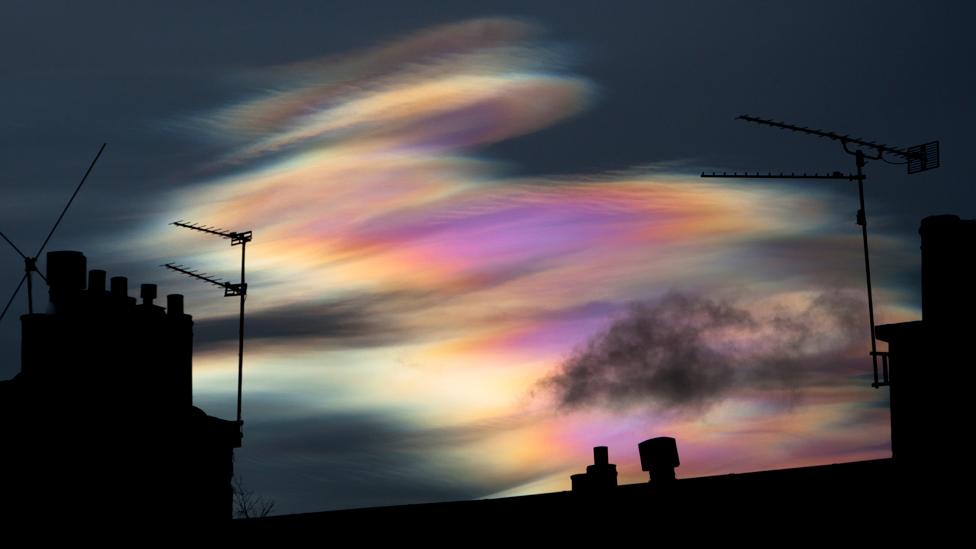University switches from Lancaster to Aberdeen aurora kit
- Published

Aurora Borealis watchers have switched from using detection equipment in England to kit in Scotland after missing spectacular displays in March.
The colourful phenomenon was visible in Scotland and Northern Ireland, but was also spotted as far south as Anglesey and Oxfordshire.
But Lancaster University's AuroraWatch UK missed sending out an alert advising the public of potential sightings.
To improve accuracy, it is now using kit in Aberdeen rather than Lancaster.
The Scottish city's potential for seeing the aurora, also known as the Northern Lights, is celebrated in the traditional Scottish song, The Northern Lights of Old Aberdeen.
Lancaster University, which regularly provides advance warnings of the aurora, issued an apology and a detailed explanation to why it missed the displays earlier this year, external.

Aberdeen's potential for sightings of the aurora is celebrated in song
In a new statement, it said: "Following on from that missed event, we have been working on a few changes to our alert system to hopefully improve our alert level accuracy.
"Whilst some of those changes are still being worked on and tested, today we made the switch to using data from our Aberdeen magnetometer, rather than our Lancaster magnetometer, to generate alerts.
"Because Aberdeen is quite a bit further north than Lancaster, our magnetometer there records higher levels of disturbance in the earth's magnetic field. This means that we are more likely to issue alerts, and of a higher level, than before."
Aurora Borealis occurs when electrically-charged particles from the Sun enter the Earth's atmosphere.
- Published7 March 2016

- Published2 February 2016
